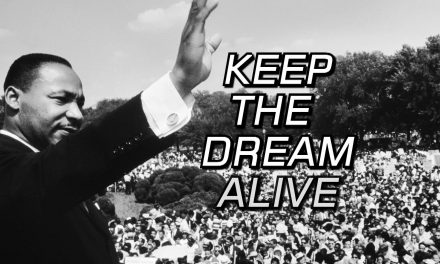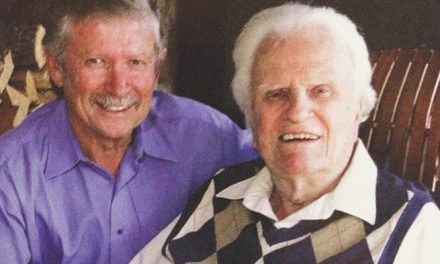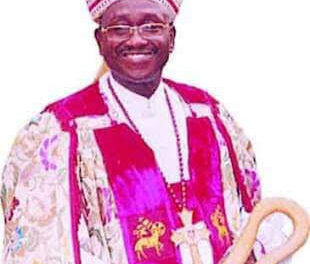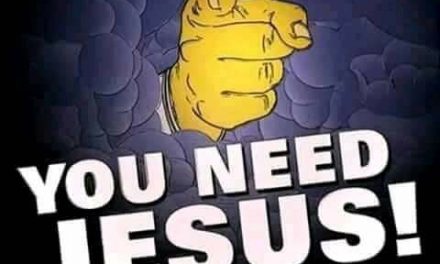“I have a belief system that when the Good Lord created the world, he created Coke one and Pepsi number two”[1] – Neville Isdell
In Jesus’ own day there was no shortage of temple priests with a marketplace self-serving motives. The second and third generation of the church and leadership faced the same problem especially with money and often linked with success, sex, and power. There are some arguments with examples in support of a ‘marketplace’ approach to church growth and leadership. One example is Neville Isdell who rose from a bottle salesman to run the Coca-Cola as the world’s leading soft-drink Company that people will want to become a part of. Neville Isdell, the author of the first book 240 pages by a Coca-Cola CEO tells the remarkable growth and revival of the Company. Temple Priests or a Coke “marketplace” self-serving motives is about competition, being number one, doing a job that makes careers and profit through human ingenuity that climaxed in spiritual and social prisons. Indeed, ‘power puts people into ivory towers. There is a tendency to forget the real world and how most people live.’ [2] The Good News is that, Jesus offers the people an example of missional leadership beyond temple priests and a ‘marketplace’ self-serving motives, spiritual and social prisons. Through Jesus’s act of clearing the temple of the priests ‘marketplace’ self-serving motives, we see both the tough and tender sides of Christ’s leadership as a model of missional leadership.
Missional leadership creates and grows missional practices and structure centered on the goal of soul winning and discipleship in anticipation of Jesus’s Second Coming. Missional leadership is shaped by a sense of “sent-ness” bringing the Good News to the people and asking people to come and be part of us. Missional Church is about “go and tell” vice “come and see.” Beyond the Temple priests ‘marketplace self-serving motives, let us first look at some pictures of missional leadership based on some metaphors through Jesus’ life and the rest of the New Testament.
Missional leadership through the lens of Priest and worshippers is a picture of godliness and spiritual intimacy. Missional leadership is built on the foundation of holiness and self-discipline in order to connect people to God. Missional leader “are a chosen generation, a royal priesthood, a holy nation, His own special people, that you may proclaim the praises of Him who called you out of darkness into His marvellous light” (1 Pet 2:9). Missional leadership is a metaphor of vine and branches, a picture of the leader as a source of nourishment. In the footstep of Jesus, missional leader offers provision (Jn 15:5). Missional leader speaks of husband and wife, a supportive, covenant relationship in which the leader shows love and commitment. Paul’s words to the Corinthians resonates with missional leaders because God is jealous for them with godly jealous and they have been betrothed to Jesus Christ (2 Cor 11:2). Missional leadership in a father and child perspective is a warm and loving relationship in which the leader nurtures and respects his or her followers. “You know how we exhorted, and comforted, and charged every one of you, as a father does his own children” (1 Thess 2:11).
Missional leadership points to head and body as a picture of the governing, renewing relationship in which the leader gives direction by “speaking the truth in love” (Eph. 4:15). Missional leadership is a picture of king and citizens, reflecting wisdom and influence. The leaders guides the people, no longer as strangers and foreigners, ‘but fellow citizens with the saints and members of the household of God’ (Eph 2:19). Missional leadership reflects potter and clay, a picture of responsibility and surrender. The leader develops the people as ‘the potter have power over the clay, from the same lump to make one vessel for honour and another for dishonour?’ (Rom 9:21). Missional leadership is about vinedresser and vineyard discipline in term of a farmer who prunes and cares for his own bearing in mind ‘every branch that bears fruit He prunes, that it may bear more fruit’ (Jn 15:2).
Beyond the Temple priests ‘marketplace’ self-serving motives, missional leadership resonates with captain and army picture of authority and training. The leader prepares the troops for (mission) battle thereby enduring ‘hardship as a good soldier of Jesus Christ. No one engaged in warfare entangled himself with the affairs of this life’ (2 Tim 2:3-4). Missional leadership as creator and creature relationship is a picture of power and submission. This is expressed as the leader reproduces himself in others (Col 3:10). Missional leadership is prophetic and people oriented a picture of anointing and spiritual power. Missional leadership corrects and envision just as prophet Agabus did with Paul, ‘a certain prophet named Agabus came down from Judea. When he had come to us, he … said, “Thus says the Holy Spirit … (Acts 21:10). God wants us to fulfil missional leadership role especially as shepherd and sheep, a picture of warmth and beauty, guiding and protecting the people (Jn 10:11).
The temple priests who were supposed to be God’s appointed missional leaders because of their self-serving motives turned themselves to man and state-appointed leaders. They thereby devise and support plans and policies that oppose God’s commands, plans and purposes. The goals of the temple priests or a Coke ‘marketplace’ self-serving motives issues from human ingenuity rather than God’s anointing blinds the priests and their followers to God’s intentions.
What works for a marketplace self-serving motives of the temple priests or Coke must not be a prototype for the church. It is important to look at some helpful insight on a marketplace self-serving. The Book, Inside Coca Cola, A CEO’s Life Story of Building the World’s Most Popular Brand is about the business and career adventures of the author, Neville Isdell. Through his 40 years journey, Isdell in his broad overview of the Coke Business model points us to some global challenges through his career ladder at Coca Cola from a bottling company in Africa to eventually becoming its CEO and Chairman. A marketplace self-serving motives is shaped by competition as exemplified between Coke and Pepsi on the best of the soft drink market. According to Isdell, ‘this was business war and the enemy was dressed in blue.’
Coke’s competition with Pepsi is about who win over the customers hence as a career, Isdell journey to over 200 countries with exception to operate in India (second largest population that time) because he was not ready to reveal the recipe of Coca-Cola to the India minister of finance then, Manmhan Singh. Isdell later established Coca-Cola operation in India. Coca-Cola is sold in all but three countries in the world: North Korea, Cuba and Myanmar. Just as the story of Coca-Cola was designed as a hangover and headache remedy by a pharmacist, the temple priest in their self-serving priestly duties, ‘their own apathetic and inactive response to the money-changers showed them how little they really did care.’ Isdell started his career as a bottler and climbed up the corporate hierarchy and ‘his impeccable business sense and turnaround strategies in different geographies including Africa, Australia, Philippines, Germany and India had a focus on cutting down unnecessary costs to fuel marketing.’ Marketing control and gain based on the privilege and opportunities afforded is the target of temple priests and a Coke ‘marketplace’ self-serving motives.
While the temple priests exchanged their God’s calling and mission raison d’être for the business’s raison d’être of a ‘marketplace’ self-serving motives, there was a departure from traditional views of mission. In an emerging concept called “connected capitalism” promoted by Isdell, “doing good” and “maximizing profits” are not view separately. A ‘marketplace’ self-serving motives shaped by “connected capitalism” ‘holds that businesses must do good in order to maximize shareholder value, operate successfully in global markets, and secure long-term business interests.’ Isdell explains, “The statement ‘the purpose of business is to maximize profit’ is true, as long as we add to it, ‘over the long term.’”[3] The temple priests or a Coke ‘marketplace’ is about securing long-term business interests and ‘talking about business as a force for good’ forgetting that not all good are godly. According to Isdell, the role of business is ‘not about philanthropy; it’s about good business practices.’ Temple priests or a Coke ‘marketplace’ self-serving motives of dynamics in franchising businesses is about aggressive selling and marketing of the products including ‘sugary syrup that adds a lot to obesity and other health problems.’Isdell’s final call for “corporate social responsibility” suggests a self-serving motives securing long-term business interest and not about peoples interest. Temple priests or a Coke ‘marketplace; self-serving motives ‘around the generic theme of “me, myself and I” is about when ‘power puts people into ivory towers,’ they forget God, His mission and the real world. Missional leadership is about sense of sent-ness to safe the people.[4] This is in contrast to the temple priests or a ‘marketplace’ self-serving motives that forget God, the real world and how people live.
[1] Isdell, Neville, Beasley, David, Inside Coca-Cola: A CEO’s Life Story of Building the World’s Most Popular Brand (New York; N.Y. : St Martin’s Press, 2011), p.64
[2] https://globaleduc.wordpress.com/2012/02/01/book-review-inside-coca-cola/
[3] Isdell, Beasley, Inside Coca-Cola, pp. 217-230
[4] Okegbile, Deji, Missional Leadership for Repositioning Nigerian Methodism (Lagos: Alet Inspirationz, 2019), pp. 16-22










Recent Comments